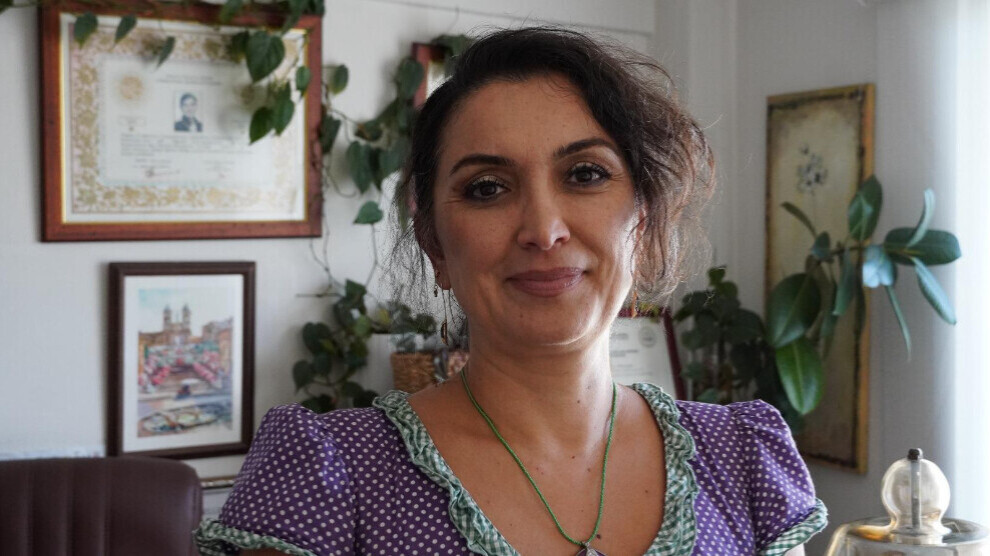EŞİK: Religious discourse used to systematically undermine women’s rights
Lawyer Selin Nakıpoğlu, from the Women’s Platform for Equality (EŞİK), condemned recent religious rhetoric from Turkey’s Presidency of Religious Affairs, calling it a “serious escalation” of institutional interference in women’s lives.

ELİF AKGÜL
Istanbul - As part of a series of statements targeting women, the Presidency delivered a standardized sermon on August 5 in over 90,000 mosques, aiming to reinforce traditional roles for women in contradiction with civil rights guaranteed under the Turkish constitution. The sermon, focusing on “Women’s Rights in Islam,” sparked widespread protests from women’s and civil society organizations, who condemned it as a direct violation of women’s inheritance rights and an exclusionary narrative at odds with secular republican principles.
The Women’s Platform for Equality (Turkish: Eşitlik İçin Kadın Platformu - EŞİK) described the sermon as an attempt to give religious legitimacy to discrimination against women and filed a criminal complaint. The Secularism Council also warned that the sermon threatens the separation of religion and state. Activists launched the “We Will Not Relent on Our Civil Rights” campaign, calling for collective protests against what they describe as a systematic effort to undermine women’s rights.
Religious sermons control women
Nakıpoğlu stated that religious sermons directly target women’s hard-won rights and the principle of equality. “The Presidency of Religious Affairs’ sermons have effectively become official statements dictating women’s lifestyles,” she said.
She added, “Strikingly, these sermons rarely address corruption, injustice, political bribery, or elite excess, yet they immediately police women’s lives—criticizing a laugh, a strand of hair, or even how women spend vacations or manage inheritance. We are witnessing a state institution repeatedly engaging in a pattern of violations.”
‘We are denied our rights as citizens’
Nakıpoğlu highlighted that women face a state institution that ignores their citizenship rights and marginalizes them within the secular legal system. “We are confronting the Presidency telling women, ‘Your place is not here.’ This is a blatant denial of our rights as citizens,” she said.
She emphasized that this discourse not only violates the spirit of the republic but challenges its very foundations: “Insisting on placing women in a subordinate position contradicts the essence of the modern state. The institution, under the guise of religious advice, engages in social and political engineering, acting as a propaganda tool for political Islam. It operates against the constitution and laws, seeking to undermine women’s rights according to its own agenda. This is far from innocent.”
The sermons reach millions through over 90,000 mosques, positioning the Presidency as a “guardian of morality.” Nakıpoğlu noted its coordination with the Ministries of Justice and Education, citing the joint ÇEDES project (Çevreme Duyarlıyım, Değerlerime Sahip Çıkıyorum, “I am Sensitive to My Environment, I Uphold My Values”), a social-educational program coordinated between the Presidency of Religious Affairs and the Ministry of Education, often linked to civic and moral guidance activities in schools and communities. She also highlighted mediation practices in family law with the Ministry of Justice as examples. Nakıpoğlu warned that recent sermons could pave the way for changes in inheritance law: “There is a clear attack on women’s inheritance rights. A state institution is providing guidance to millions, denying women equal inheritance. This, in itself, is a crime.”
Presidency continues legal violations
Nakıpoğlu confirmed that multiple civil rights organizations have filed criminal complaints against the Presidency’s sermons, yet no legal action has been taken. “The institution does not merely ignore these reports; it continues committing offenses such as incitement to crime, glorifying perpetrators, and misusing religious services inappropriately during official duties,” she said, recalling the August 1 sermon targeting women’s clothing. “When you speak about a woman’s attire in a sermon, you are effectively giving male listeners implicit permission to harass her.”
She emphasized that the public prosecutor should treat these sermons as direct criminal reports and launch investigations without waiting for complaints, a measure that has not yet occurred. Nakıpoğlu warned that the Presidency is promoting a legal system incompatible with the constitution: “In such an environment, with whom and under what political authority can we even talk about a new constitution?”
Concluding, she said: “It is clear that the Presidency of Religious Affairs, along with the Ministries of Education and Justice, are advancing a vision of a legal system contrary to the constitution. The Presidency openly acts in ways that conflict with the principles of the secular republic. Its overreach has long surpassed limits, and now it has begun intervening in the educational and legal systems as well. The situation is critical, and secularism is not an outdated or obsolete concept—it is one of the most urgent issues for which we must raise our voices and fight to protect.”
